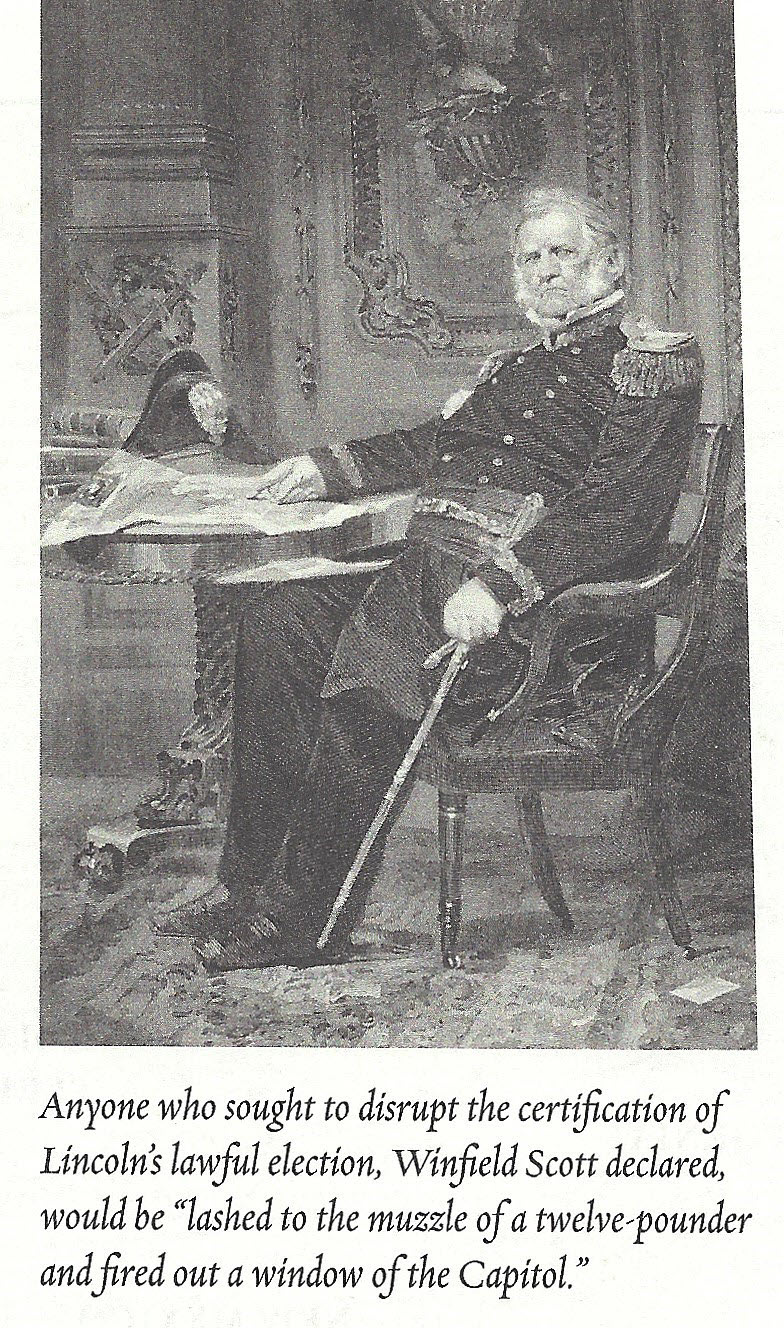
A Window of Vulnerability:
|
There was the central issue: the Lincoln
presidency. A window of vulnerability, Lincoln knew, was the
certification of the election in mid-February. “It seems to me the
inauguration is not the most dangerous point for us,” the
president-elect told Seward. “Our adversaries have us more clearly
at disadvantage” if the could disrupt or delay Electoral College
count. “It is, or is said to be, more than probable,” Henry Adams
wrote, “that some attempt or other will be made to prevent the
counting of the votes and the declaration of Lincoln’s election” –
and thus to prevent his presidency.

Winfield Scott, the aged commanding general of
the U.S. Army stepped into the breach. “I have seen General Scot,
who bid me say he will be glad to act under your orders, in all
ways to preserve the Union,” Simon Cameron told Lincoln. “That,
for this purpose, he has ordered here 2 companies of flying
artillery; and that he will organize the militia – and have
himself sworn in as constable.” Deploying federal troops
throughout the capital, Scott left no doubt about his intensions.
Anyone “who attempted by force or unparliamentary disorder to
obstruct or interfere with the lawful count, “ the general
declared, would be “lashed to the muzzle of a twelve-pounder and
fired out a window of the Capitol.”*
* Page 214, from "And There Was
Light: Abraham Lincoln and the American Struggle" by John
Meacham, © 2022 by Merewether LLC